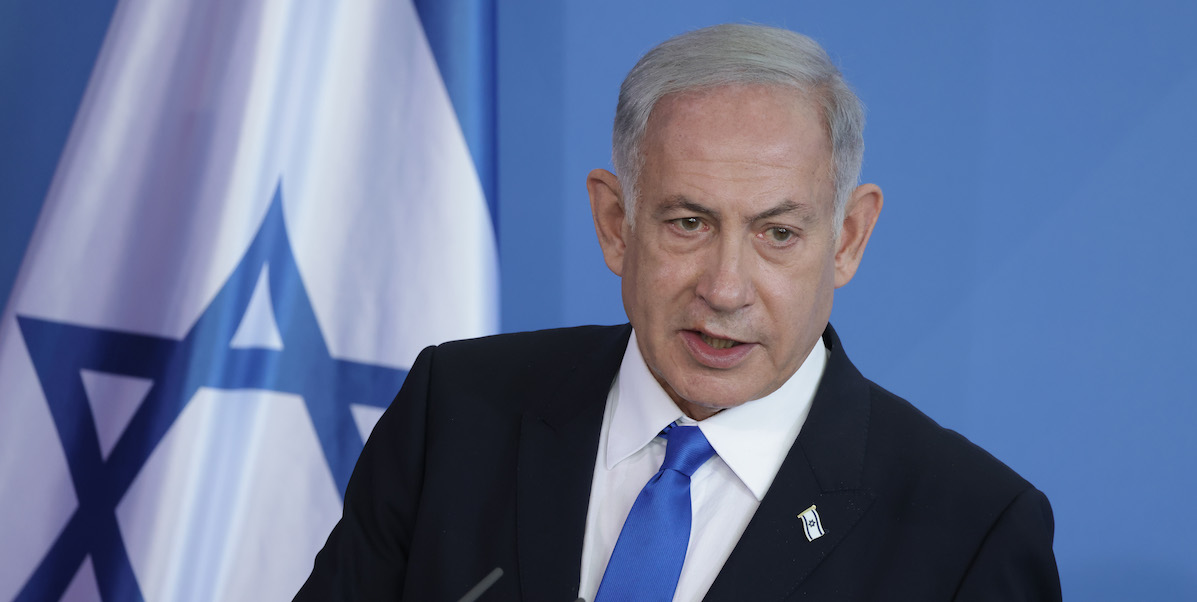It is divided over choosing the representative of the Israeli government in the arbitration committee, and the opposition candidate is elected
Four members of the pro-Benjamin Netanyahu majority in Israel, They voted secretly To support the nomination of an opposition candidate as a delegate to the committee that selects the country’s judges. The formation of the committee is one of the central points of the judicial reform that the prime minister desires and has been under discussion for months. For Netanyahu, who has led the most right-wing government in the country’s history since last December, yesterday’s vote represents a major political defeat, which also shows the divisions within his coalition.
The vote to choose parliament delegates to the committee that appoints judges was seen as a kind of referendum on reforming the judicial system, which Netanyahu proposed and which has been protested for months. The reform removes the powers of control from the Supreme Court to assign them to the government and for the protesters and the opposition it is dangerous for Israeli democracy, because it effectively eliminates any counterweight to the power of the current government. In addition to weakening the Supreme Court, the reform would give greater guarantees to the personality of the Prime Minister (who would not risk impeachment due to judicial proceedings against him) and would entrust some powers to the rabbinical (i.e. Jewish) courts. religious courts), which can settle certain civil claims if both parties agree.
A key element of the reform relates to the manner in which judges are appointed. Currently, all the country’s judges, whether justices of the Supreme Court or lower courts, are selected by a nine-member panel, of which only four, i.e. the minority, are chosen by the government. The members of the committee are: three justices of the Supreme Court itself, two representatives of the Israel Bar Association, two cabinet ministers and two members of parliament.
The government would like to raise the committee members to 11, eight of whom are political appointees. In this way, the government would have complete control over the appointments of Supreme Court justices and lower court judges.
On Wednesday, June 14, Israel’s parliament, the Knesset, was scheduled to vote to select the parliamentary delegates to the committee. Traditionally, the government appoints a representative of the majority and one of the opposition, but the far-right and ultra-Orthodox parties that are part of the majority have asked for both positions to be filled by their representatives.
Netanyahu seemed inclined to support the election of one member of the coalition and one of the opposition, which would have given him greater leverage in the ongoing negotiations over judicial reform. But the far-right wing of his government opposed it. At the last moment, the Prime Minister decided to ask his deputies to vote against all the candidates in order to buy time for internal negotiations: in fact, not electing anyone would have triggered a new vote in the next few days. He has also asked his party’s candidate, Tali Gottlif, from the Likud party, but very close to the far-right, to withdraw her candidacy.
However, four members of the majority did not follow the prime minister’s instructions and used a secret ballot to support opposition candidate Karen Elrar of the centrist Yesh Atid party, who was elected with 58 votes out of 115. The second candidate, Tali Gottliffe, refused to withdraw her candidacy, but did not receive enough votes. to elect her.
After the vote, Benny Gantz and Yair Lapid, leaders of the two main opposition parties, decided to suspend talks on judicial reform, explaining that Netanyahu had lost control of his government and was being held hostage by extremists. The prime minister replied that the opposition representative had been elected, but the opposition is still taking advantage of that to torpedo negotiations on reforming the judicial system, which indicates its lack of serious efforts for negotiations.
Within thirty days, the Knesset will have to vote again to choose the second delegate to the committee that selects the judges.
– Also read: The protests in Israel are unprecedented

“Reader. Travel maven. Student. Passionate tv junkie. Internet ninja. Twitter advocate. Web nerd. Bacon buff.”




